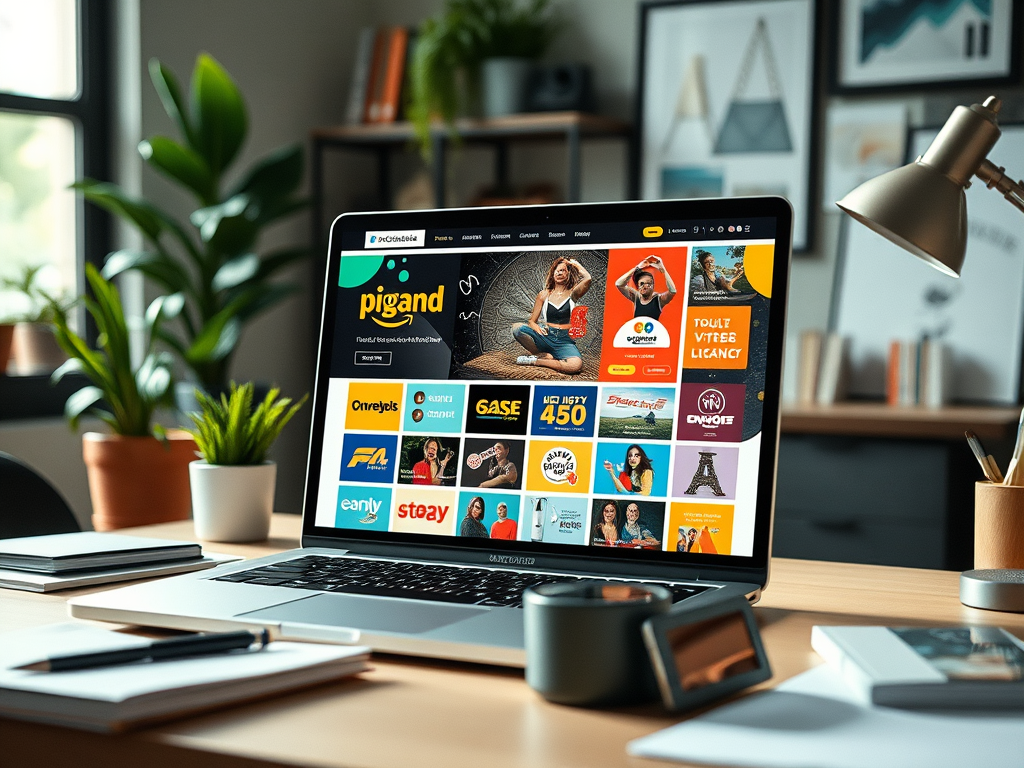
In today’s digital age, businesses are increasingly focusing on social media platforms to connect with customers, build communities, and drive sales. While a strong social media presence is undoubtedly valuable, relying solely on platforms like Instagram, Facebook, or TikTok can limit your growth potential. To truly thrive in the competitive online space, having a professional website alongside your social media accounts is not just important—it’s essential.
Ready for the next level?
Here’s why having both a website and active social media profiles is the winning combination for your business now.
Your Website is Your Digital Home

Social media platforms are great for building brand awareness and engaging with your audience, but they are rented spaces. You don’t own your Facebook page or Instagram account—those platforms control the rules, algorithms, and even your access to your audience. If those platforms make changes (like algorithm updates that reduce your organic reach), your entire strategy could take a hit.
A website, on the other hand, is fully owned by you. It serves as the central hub for your business online, where you control the user experience, content, and messaging. A website gives you stability and independence from the shifting dynamics of social media platforms.
Key Point: Your website is the only digital asset you fully own, providing a stable, long-term foundation for your online presence.
Establishing Trust and Credibility
While social media is excellent for casual interactions and showcasing your brand’s personality, a website is where you establish credibility and trust. Many potential customers will search for your website before making a purchase decision to learn more about your business, products, and services. If you don’t have one, it can raise questions about your legitimacy and professionalism.
A professionally designed website gives you the opportunity to present your brand in a controlled, polished environment. It allows you to include elements like customer testimonials, case studies, and in-depth information that social media posts can’t always convey effectively.
Example: Think of a time you were interested in a brand. Did you feel more confident after browsing their website and seeing a professional layout with detailed service information, or just by scrolling through their Instagram posts?
SEO and Discoverability

Social media platforms have limited search capabilities. Yes, people can find your brand by searching hashtags or keywords, but the reach is often confined to the platform itself. If your business doesn’t have a website, you’re missing out on traffic from people searching for products or services like yours on Google and other search engines.
With a well-optimized website, your business can appear in search engine results when potential customers are looking for the services you provide. This is especially crucial for local businesses that want to attract nearby customers. SEO (Search Engine Optimization) helps your website rank higher, making it easier for new customers to discover your business.
Showcasing All Aspects of Your Brand

Social media posts are typically short, visual, and aimed at quick engagement. While this is great for drawing attention, it’s hard to convey the full story of your business in a single Instagram caption or TikTok video.
A website allows you to go deeper. You can tell your brand’s story, explain your values, showcase all your products and services, and provide a comprehensive experience for visitors. With different pages for services, FAQs, blog posts, and contact information, you’re offering a more complete and professional view of your brand.
Pro Tip: Blogs on your website can also boost your SEO, while simultaneously offering valuable insights and building authority in your industry.
Seamless Integration with Social Media

The beauty of having both a website and active social media channels is that they can work together seamlessly. Your social media can drive traffic to your website, where visitors can learn more, make purchases, or book services. On the other hand, your website can include links to your social profiles, encouraging visitors to follow you on Instagram, Facebook, or LinkedIn for daily updates.
For e-commerce businesses, this is especially important. You can leverage social media for discovery and engagement, while your website serves as the platform where transactions happen, showcasing your product catalog in a way that social media can’t.
Key Insight: Think of social media as the gateway to your brand, and your website as the destination where conversions happen.
Data Ownership and Analytics
Social media platforms offer limited analytics that focus mainly on engagement metrics—likes, comments, shares, etc. While these are valuable, they don’t give you a complete picture of how your audience behaves and interacts with your brand.
A website, paired with tools like Google Analytics, allows you to dive deeper into visitor behavior. You can track where users come from, how long they stay on your site, which pages they visit most, and what actions they take (like purchasing a product or signing up for a newsletter). This data helps you understand what’s working and what needs improvement, giving you actionable insights to drive growth.
Pro Tip: Owning this data is crucial for making informed business decisions. Social media platforms may change their data policies or restrict access, but with your website, you have full control.
Adaptability and Customization
Social media platforms have specific formats and limitations when it comes to design, content length, and layout. While this creates consistency, it also limits your creative control. A website, however, can be fully customized to reflect your brand’s personality, aesthetics, and functionality.
Whether you need a fully integrated e-commerce store, a blog, or a members-only section, your website can be tailored to meet the unique needs of your business. This flexibility allows you to stand out from competitors who rely solely on the standardized templates of social media platforms.
The Real Advantage: A Website and Social Media Together
To succeed in the digital world, you need both a strong social media presence and a professional website. Social media allows you to engage with your audience and build a community, while a website gives you credibility, full control over your content, and the ability to convert followers into paying customers.
If you’re currently relying only on social media for your business, it’s time to consider the long-term value of having a website. Not only will it provide a stable platform that you fully control, but it will also work hand-in-hand with your social media efforts to build a stronger, more effective digital presence.
Ready to create a website that complements your social media strategy? At V-Factor Social, we specialize in building custom websites that align with your brand’s goals and help you grow. Let’s get started on a solution that drives more traffic, builds trust, and generates more sales for your business.
Ready for the next level?
Contact us today to learn how we can help you succeed in the digital landscape!
